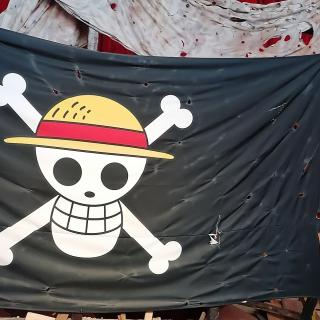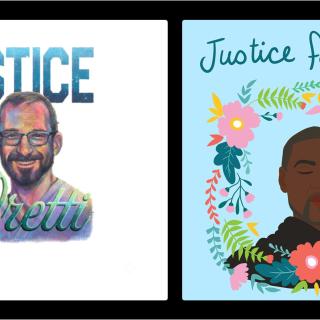Advertisement
It wasn’t a big ask, thought Michael Doody who runs the endangered Kossuth Street Garden. Can the City of Columbus facilitate a meeting with the Salvation Army, which held the land’s deed, so it can understand his vision for the garden?
He wanted to present his plan to the Salvation Army but was not getting a response, so he asked the City of Columbus to help get that meeting.
But city development employees scoffed, telling him, “The city does not get involved in the sale of private land.”
“I said, ‘Really?’” recalls Doody, a southside activist who since 2007 has turned the garden into an anchor for the Southern Orchards neighborhood on the southside of Columbus. “I bet I could come up with a dozen cases if I speak to zoning reform advocates in this city. The city was involved in private land in the Short North. They gave private owners tax abatements to build in the Short North.”
All Doody wanted to do was make an offer to the Salvation Army so to show them his plans.
“A larger garden, perhaps a working farm, an ecological and environmental studies place. Maybe a building where students can learn, use it for STEM purposes (for nearby schools), and it would be a safe spot because it’s on the safe routes for schools,” says Doody who was a recipient of an “Everyday Heroes of Central Ohio” award by the Dispatch in 2017. Doody also advocated for truly affordable homes on the lot.
Keep in mind this is the Salvation Army he was trying to pitch to – little red Christmas kettles, dedicated to serving to children who are at-risk, rehabbing addicted adults, their Christian-driven charity fueled in part by thrift stores.
But as we’ve reported so many times before, the city bows and (secretly) facilitates the needs of rich developers first and foremost. Because after all, most ultra-wealthy Central Ohioans would scoff at saving Kossuth Street Garden or anything else that gets in their way from making easy money they barely do any work to earn.
When Columbus Children's Hospital received $50 million grant from Nationwide in 2007, Doody could see the writing on the wall for gentrification and the sale of that lot. “Nationwide Children’s Hospital/Healthy Homes has done a great job remodeling homes in our area and being good neighbors,” Doody conceded, “It would be nice if other developers followed their lead. Nationwide Childen’s Hospital has donated flowers to the Kossuth Street Garden for several years now and are always responsive to our concerns.”
Doody began making his offer to the Salvation Army in 2015, but he could only get through by phone. He offered $100,000 and would have the money to them in two days.
“We were told over the phone, ‘No its $109,000 and it’s firm’,” said Doody.
This was 2018, and not long after, the Salvation Army punched him in the gut. They had sold the property to developer Tracy Cohen for…$100,000.
The Salvation Army’s realtor, who facilitated the sale, was Skip Weiler of the Robert Weiler Company, which has a century-old history of building and managing local real estate. Skip Weiler told the Free Press he has been friends with Tracy Cohen for “30 years.”
Cohen is planning to build “affordable housing,” and the Columbus Development Commission approved his zoning request in January 14th, but city law has always been a bit ambiguous on what their definition of affordability means. Cohen’s “affordable housing” will be ten homes with price tags from $250,000 to $350,000. And while these homes will bring in tax revenue for the city, the eventual owners will probably be awarded tax abatements. The homes Doody and others feel would be actually affordable would be closer to $100,000.
“The Salvation Army was not helpful in keeping something to help turn around the neighborhood. We’ve been an anchor in this neighborhood during its revitalization,” said Doody.
City Council will rule on Cohen’s zoning request in the coming weeks after a public hearing, which gave an official commendation to the garden after it won Franklin Park Conservatory’s 2020 “Neighborhood Improvement Project” of the year.
The garden went on the market during Mayor Ginther’s tenure. “When I didn’t get any replies from Ginther’s administration,” Doody mused, “I think they wanted this land to not be green space and for kids to play safely and to learn about the environment. I wanted them to send an email to the Salvation Army prior to the sale of being on the market because I could see it coming.”
“It wasn’t in their interest. They wanted to see [the garden] become a developer’s dream,” Doody concluded
The Salvation Army owns urban properties in nearly every major American city, something many are not aware of.
“We do own many [urban] properties,” James Brennan, Salvation Army’s new director for Columbus, told the Free Press. “To build food pantries, housing and job training centers.”
In an emailed statement to the Free Press, the Salvation Army stated, “In August 2018, The Salvation Army sold a vacant property at Kossuth Street that we had acquired in 1999 with the original intention of developing into a service corps. This property sale was part of a normal process of asset rationalization designed to ensure we could continue to serve the most people most effectively at locations that were most convenient for them.”
Yet when the Free Press asked the Salvation Army three times through email who their realtor was that facilitated the sale to Cohen they offered no name. Doody had the same problem. The Salvation Army refused to tell him who the realtor was when he tried to offer his $100,000. It took a recent Columbus Development Commission meeting about the sale to reveal who the realtor was – Skip Weiler.
Indeed, Doody had asked a realtor friend to find out who Salvation Army’s realtor was by accessing the MLS (Multiple Listing Service), which only licensed realtors can access. Again, he was desperate to at least make an official offer to Salvation Army. The realtor came back to Doody surprised – the realtor’s name was missing from the record.
This October, Doody realized to the save the garden he needed to go directly to Cohen to see if he would change his mind and re-sell the property.
“I called him, and I said, ‘We’ve got somebody with some money, and they are interested.' Cohen goes, ‘Now? $500,000’,” said Doody. “I told him, ‘Well, that knocks me out’.”
At dusk one recent day a bright sun is setting fast over the Kossuth Street Garden. Doody is there with his dog and a neighbor. There’s a feeling that soon, like a lot of what old-school Columbus once was, this place too will turn into something plain, inconsequential, and for the benefit of just a few and privileged.
Kossuth Street Garden volunteers are feeling betrayed, since in 2018, Cohen and Doody spoke about the future of the garden. Cohen claimed he was just a land speculator but promised to introduce Doody to whatever entity would buy the land if and when that happened. In the meantime, Cohen made Kossuth Street Garden responsible for keeping the lot mowed, which they did to the tune of $750, plus they were obligated to call 311 about any illegal dumping and keep the lot free or debris, which the volunteers did faithfully.
City employees and the zoning chair of the Southside Area Commission have recommended that Doody “Just move the garden.”
Doody sighs. Amber Evans, Ruben Castillo Herrera and Emily Noble are memorialized there, as are fallen police and firefighters, he says. The garden also houses the cremains of garden volunteers who were murder victims.
“This is a living organism, they’re not so easily moved,” he said. “It shouldn’t be this hard to save something that has done so much for the community.”



